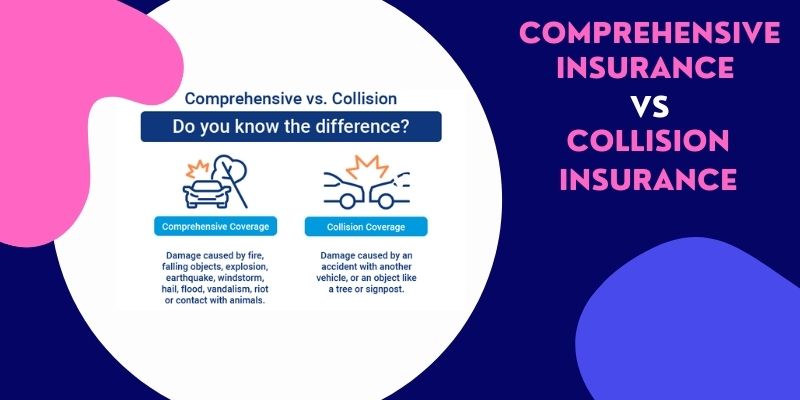Maintaining accurate financial records is an essential aspect of prudent financial management, and IRS Publication 552 serves as a comprehensive guide for individuals seeking to track their income and expenses efficiently. This publication provides taxpayers with detailed information on which records should be maintained, how long they should be kept, and the importance of these documents in minimizing tax-time stress. It delves into various types of records, including those related to income, deductible expenses, and property transactions. By keeping thorough and organized records, taxpayers can ensure compliance, substantiate claims made on their tax returns, and potentially identify opportunities for deductions. Embracing the guidelines outlined in IRS Publication 552 can lead to more accurate tax filings and reduce the likelihood of unexpected audits.
Importance of Record Keeping
Keeping precise and organized records plays a critical role in both personal and financial success. Comprehensive record keeping helps individuals manage their finances more effectively, providing a clear overview of their financial health. By maintaining detailed records, taxpayers can form a well-documented foundation for their tax returns, reducing unintentional errors and ensuring compliance with the IRS requirements.
These records play a vital part in identifying eligible deductions, ultimately minimizing tax liabilities. Beyond tax season, organized records assist in budgeting, tracking expenses, and planning for future financial endeavors. In the event of an inquiry or audit, having easily accessible documents can facilitate a smoother review process, enabling quicker resolution and diminished stress.
Diligent record keeping can shed light on spending habits, paving the way for improved financial decision-making and long-term savings strategies. Ultimately, adopting rigorous record-keeping practices empowers individuals to maintain financial control and supports strategic, informed fiscal planning.
Types of Records to Maintain
Organizing and maintaining specific types of records is essential for enhanced financial management and compliance.
1.Income Records
Income records encompass documentation related to all sources of received income, including wages, dividends, interest, and rental income. Keeping copies of pay stubs, 1099 forms, dividend statements, and any other source documents is crucial for accurately reporting income on tax returns. These records serve as evidence of earnings and assist in verifying the amounts reported, reducing the risk of discrepancies during tax assessments.
2.Deductible Expense Records
Documenting deductible expenses can lead to significant tax savings by lowering taxable income. Records should include receipts and invoices for business expenses, medical bills, educational costs, and charitable contributions. Meticulously keeping track of these expenses ensures taxpayers fully benefit from all eligible deductions, thereby minimizing their overall tax liability.
3.Property Records
Property records are vital for tracking the purchase, improvement, and sale of any real estate or significant assets. Documentation such as deeds, closing statements, and receipts for home improvements impact the calculation of capital gains or losses and depreciation deductions. Properly maintaining these records provides a clear history of property transactions and aids in accurate reporting when assets are sold or transferred.
4.Investment Records
Investment records include detailed information regarding any securities or investment holdings. These records, such as brokerage statements, purchase, and sale confirmation slips, assist in calculating gains, losses, or dividends for tax purposes. Accurate investment record maintenance supports effective portfolio management and ensures accurate reporting in compliance with tax laws.
How to Track Receipts Efficiently?
Tracking receipts efficiently is a cornerstone of effective record-keeping, ensuring that all necessary documentation is accurately captured and easily accessible.
- Digital Storage Solutions: Utilize apps and cloud-based services to scan and store receipts electronically. This method not only saves physical space but also organizes receipts into searchable formats, allowing easy access from various devices. By digitalizing receipts, you reduce the risk of losing paper copies and ensure long-term preservation of important documents.
- Categorization System: Implement a consistent categorization system, sorting receipts into predefined categories such as personal expenses, business costs, and charitable donations. This organization helps quickly locate receipts when needed and simplifies the process of identifying deductible expenses, thereby streamlining tax preparation tasks.
- Regular Reviews and Updates: Schedule routine checks to review stored receipts, ensuring that all entries are accurate and up-to-date. Regularly updating the records provides an opportunity to verify deductions, reconcile any discrepancies, and prepare effectively for impending tax filings. Consistent reviews help in maintaining a comprehensive and error-free financial record system.
Tips for Organizing Your Documents
Efficient document organization can greatly simplify financial management and tax filing. By creating a structured system, individuals can ensure they have access to essential documents when needed.
Utilizing Technology for Document Management
Leveraging technology can transform how documents are managed, stored, and retrieved. Various digital tools and software are designed to streamline document organization, making it easier to access and maintain records over time. Electronic document management systems (EDMS) allow users to digitally scan, index, and archive important paperwork. These systems offer advanced search capabilities, enabling users to quickly find specific documents using keywords or metadata. Additionally, many EDMS solutions integrate with other applications, such as accounting software, enhancing overall financial management.
Developing a Comprehensive Filing System
A well-structured filing system is crucial for keeping important documents organized and easily accessible. Begin by categorizing documents into broad groups, such as personal, medical, financial, and legal files. Within each category, create subcategories that align with your specific needs, such as separating financial documents into income, expenses, and investments. Consistently label folders and files with clear, descriptive names to facilitate easy retrieval. Regularly review and purge outdated documents to keep the system streamlined and relevant.
Regular Maintenance and Updates
Ongoing maintenance of your document organization system ensures its continued effectiveness and relevance. Schedule regular intervals to review and update the filing system, removing obsolete documents and adding new ones as necessary. Consistently monitoring and refining the system helps identify any gaps or inefficiencies that may arise. Staying proactive about document management prevents a backlog of unorganized files, reducing stress during tax season and when addressing other financial matters.
When to Discard Old Records?
Determining when to discard old records is crucial for maintaining an efficient and clutter-free document organization system. Financial and tax documents should typically be kept for at least three to seven years, depending on local regulations and the nature of the transactions. For instance, tax returns and supporting documents should be retained for at least three years from the date of filing or two years from the date the tax was paid, whichever is later. \
However, records linked to property acquisition, such as deeds or receipts for major home improvements, should be retained indefinitely to accurately calculate capital gains or losses when the property is sold. Legal documents, such as wills or divorce decrees, should also be kept permanently.
As a rule of thumb, review documents annually to identify those eligible for disposal and safely shred any sensitive information to prevent identity theft while disposing of unnecessary paperwork.
Final Words
Effective document management is essential for organized financial and tax practices. By leveraging digital tools, employing a structured filing approach, and regularly updating records, individuals can simplify access to vital information. Maintaining proper documentation and knowing when to discard outdated records minimizes stress and enhances financial accuracy. These practices not only streamline tax preparation but also fortify personal and business record-keeping, ensuring compliance and peace of mind. Implementing these strategies will simplify your financial life today and in the future, allowing you to focus more on other important aspects of your life.




